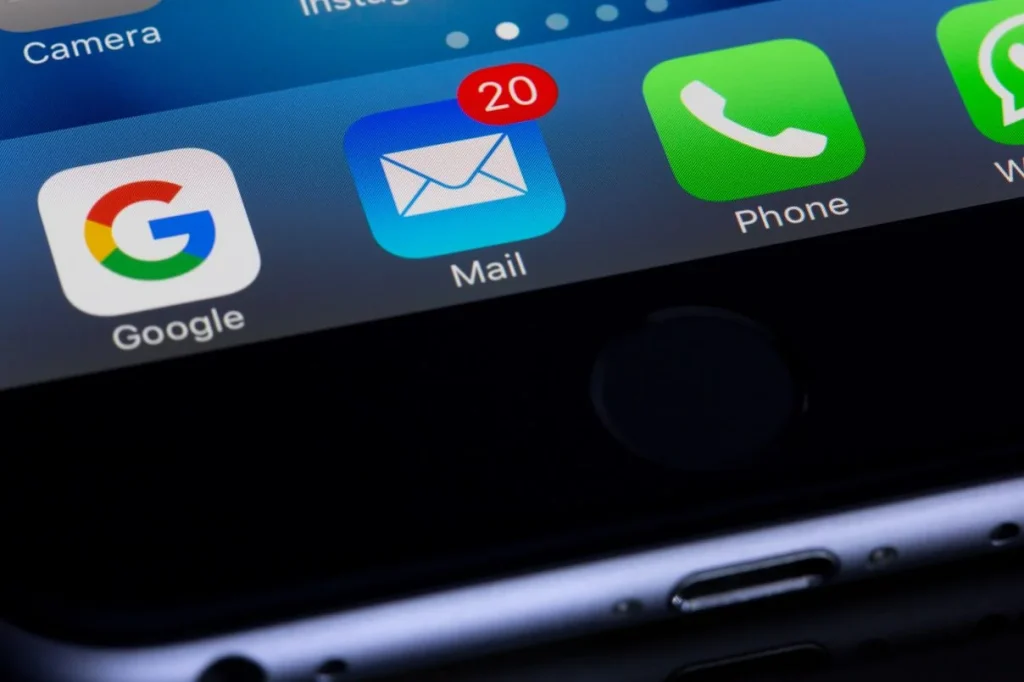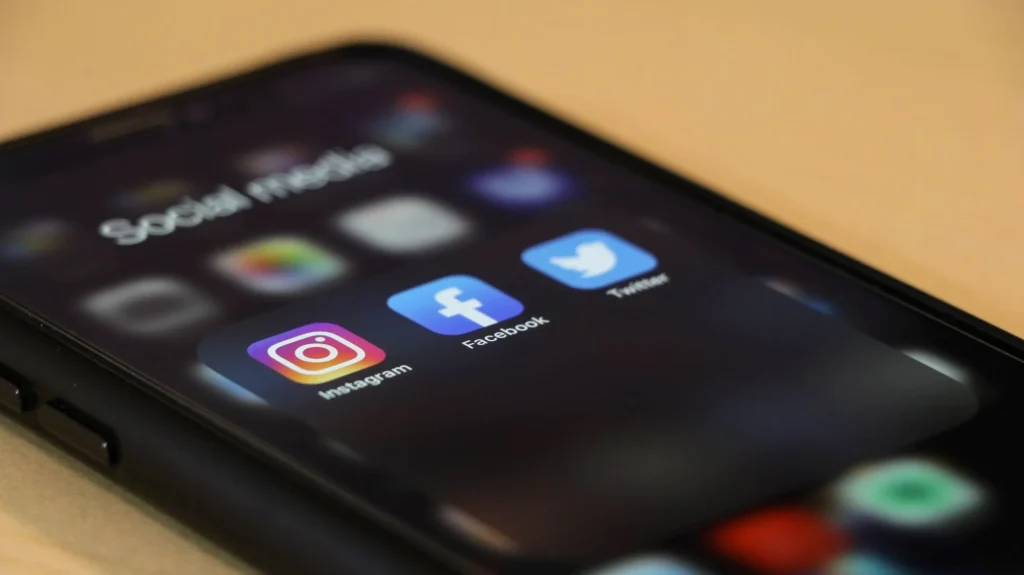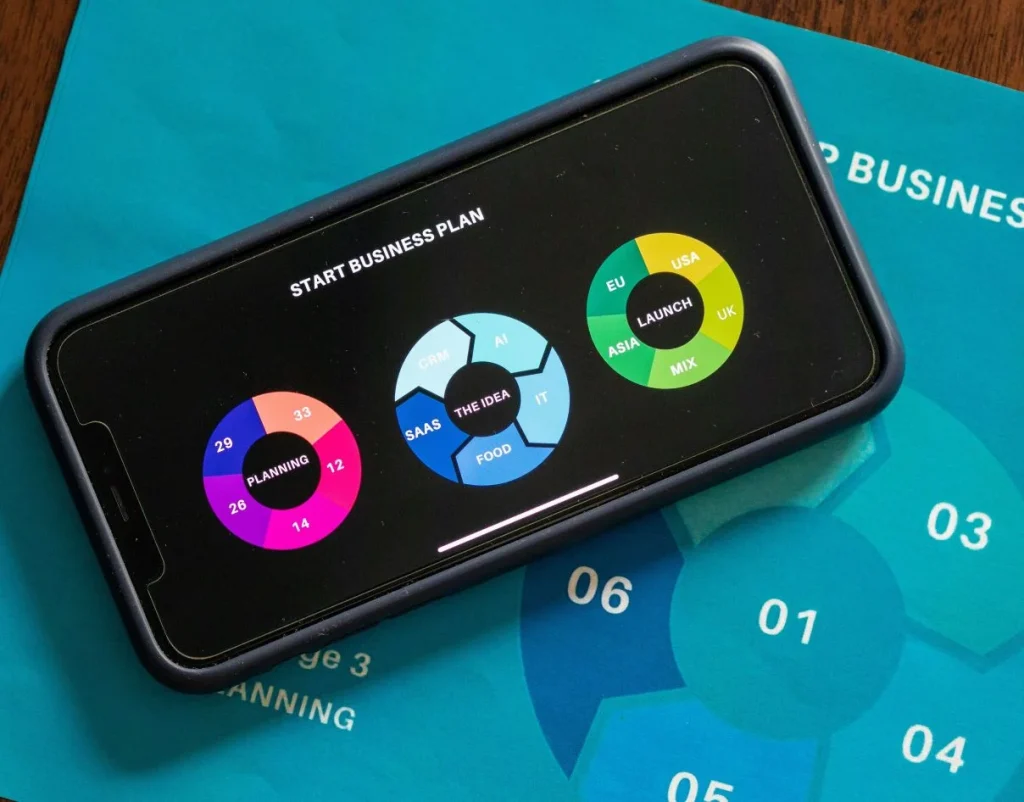In this digital era, where the majority of people own smartphones, mobile technology has shaped the way real estate professionals generate leads and connect with potential clients. From mobile CRM applications that facilitate efficient lead management to mobile email marketing platforms that optimize engagement, real estate professionals now have powerful tools at their fingertips to a house and lot for sale or a condo for sale.
Based on an international study, cell phones are now owned by over 95% of Americans, with younger individuals (18–29) having a 100% ownership rate. 94% of them are smartphones, which is staggering. Also, it’s not just teenagers. According to Pew, 89% of people in the 30-49 age group own smartphones in addition to 98% cell phone ownership. With a 94% penetration rate for cell phones and a 73% penetration rate for smartphones in the 50-65 demo, the stats are still solid. The point is that mobile technology has transformed how we work, communicate, and conduct business—including in the real estate industry.
According to Aparna (2020), every area of the economy is using technology more and more. Real estate has grown so much and taken on so many different forms that it is now a lot more accessible and administered effectively! Now is the ideal moment to buy or sell a home if you are interested. Additionally, for any little or developing organization, using these technology approaches may be the ideal way to assist your business in expanding its horizons!
Furthermore, the incorporation of mobile technology into the real estate sector has altered how the sector functions, and Traction News Staff (2023) expects this impact to continue. Accessibility, virtual tours, social media marketing, mobile transaction and payment, and smart home automation have all been greatly impacted. Real estate agents and enterprises can connect jobs, systems, and processes with mobile technology to stay on top of the most recent real estate market developments. Therefore, if you work in the real estate sector, you must embrace this digital shift and integrate mobile technology into your daily operations.
How Has Mobile Technology Shaped the Real Estate Market?

Phone technology has indeed revolutionized lead generation by providing agents, brokers, and sales professionals with powerful tools and capabilities right at their fingertips. Here are some ways phone technology has transformed lead generation and the tools that professionals can use:
Mobile CRM (Customer Relationship Management) Applications
CRM apps designed for mobile phones allow agents to manage their leads, contacts, and customer interactions efficiently. These apps enable professionals to access and update customer data, schedule follow-ups, set reminders, and track lead status while on the go.
Customer Relationship Management (CRM) software, formerly so pricey they were only accessible to the largest corporations, is now inexpensive for any real estate agent and can be used directly from a smartphone. CRM software offers an automatic and consistent stream of contacts and data to help you stay in touch with prospects and convert them into leads.
Despite the fact that real estate agents often have access to technologies that may appear to be equivalent, the way in which those tools are applied might make a difference. This involves utilizing a mobile device’s maximum power.
Mobile Email Marketing

Email marketing platforms and apps optimized for mobile phones enable agents to create and send targeted email campaigns to potential leads. These tools often provide analytics and tracking features, allowing professionals to measure the effectiveness of their campaigns and adjust their strategies accordingly.
According to Campaign Monitor, in 2019, consumers spend more time on their mobile devices and do so more regularly than they do on their desktop PCs. Today, 95% of Americans alone own some sort of cell phone, with 77% of them owning a smartphone. Pew Research notes that this has increased from 35% in 2011.
The way people receive and use email messages inevitably changes as more people move away from desktops and toward mobile devices.
In fact, in 2019, mobile devices account for 60% of email campaign opens, compared to desktops and webmail clients’ 10% and 29%, respectively.
Virtual Meetings and Video Calls

Phone technology facilitates virtual meetings and video calls, enabling agents to conduct sales presentations, property walkthroughs, and client consultations remotely. Video conferencing apps with screen-sharing capabilities enhance the effectiveness of these interactions and allow for seamless collaboration.
Real estate agents can keep in touch and present their decks to their clients without meeting each other face-to-face. Moreover, it provides convenience for both parties since it’s more hassle to commute. They can discuss their negotiation and house hunting online. So any revisions and concerns can be discussed before landing a deal.
Virtual meetings and video calls reduce misunderstandings and missed appointments. Any seasoned real estate professional will attest to how frustrating it is to arrange a meeting with a customer or prospective client only to have them completely miss it. Although they can’t guarantee it won’t happen, mobile devices can definitely reduce how frequently it does. It is simple to confirm appointments by giving them a short call or text the day before to confirm they will go as planned.
Social Media Management

Social media platforms have become an integral part of lead generation. Mobile apps designed for social media management allow agents to monitor social media accounts, schedule and publish posts, engage with followers, and track social media analytics. These tools help professionals leverage the power of social media to generate leads and build relationships with potential clients.
According to Clayton (2019), prospects can “broadcast” new listings or price reductions to a larger, focused audience for free using mobile devices and social media, as opposed to conducting countless in-person showings, many of which rapidly disqualify themselves. This allows for the addition of images and links to more information. Social media is a helpful tool for advertising open houses and informing followers of recently sold homes. Social media has a special potential to demonstrate how the real estate industry is a dynamic industry that fosters urgency. When used appropriately from their phones, it can also aid in demonstrating their knowledge. They frequently have a more focused idea of what they are looking for by the time they get to you.
Mobile Lead Capture
Mobile devices can capture leads directly through various methods. For instance, agents can use forms or landing page builders optimized for mobile devices to collect contact information from interested prospects. Additionally, QR codes can be utilized to capture leads by linking to specific landing pages or promotional materials.
Mobile Analytics and Reporting

Mobile apps and platforms provide comprehensive analytics and reporting features, allowing professionals to track and measure the performance of their lead-generation efforts. They can analyze metrics such as website traffic, email open rates, click-through rates, social media engagement, and more, enabling data-driven decision-making.
According to Kanakia, Real estate businesses now have the ideal opportunity to sell their services through mobile applications thanks to the app revolution and people’s propensity to spend hours on their tablets and smartphones. Surprisingly, not many real estate companies have taken advantage of this opportunity. This allows any business wanting to invest in this kind of marketing in the real estate sector a competitive advantage.
Moreover, according to research and consumer feedback from the year 2018, marketing using apps for smartphones and tablets is essential for any business. According to statistics, 79% of members of the millennial generation always carry a mobile device with them. A company that has a mobile app presence would have direct customer contact—a concept we are putting into practice with our recent launches.
Let us look at one of the top realtor applications, “Zillow,” as an example of an e-commerce platform for realtors. Users can keep their property search criteria on Zillow, which then matches them with fresh listings of homes. When there is a case update, the user receives an immediate push notice or their designated agent gets a message.
A study on real estate apps found that people who use apps are twice as likely to stick around than those who use mobile browsers. Users of real estate mobile apps are also twice as likely to return within a month. The survey also shows that real estate apps have a high percentage of interaction. 27.88% of users would be present for the first few days of the week before disappearing, displaying “low activity.” Followed also with 30% of users would be “mediumly active” for three to five days out of the week before disappearing. Then 40% of users would indicate “high activity,” remaining online for virtually the whole first week.
Overall, phone technology has empowered agents, brokers, and sales professionals by providing them with portable, efficient, and effective tools for lead generation. These tools enable professionals to connect with leads, nurture relationships, and close deals while maximizing their productivity and responsiveness.
Generate Real Estate Leads with Mobile Technology

To generate real estate leads using mobile technology, it’s important to follow a strategic approach. Start by developing a mobile-friendly website that is optimized for mobile devices, as most users access the web through their smartphones. Additionally, consider creating a dedicated mobile app for your real estate business, offering convenient features like property searches and scheduling viewings.
Leverage social media platforms to share engaging content, property listings, and targeted advertisements to reach a wider audience.
SMS marketing can be highly effective for reaching potential leads directly on their mobile phones.
Create virtual tours and videos using mobile technology to allow potential buyers to explore properties remotely, and share these visual assets across various platforms.
QR codes placed on marketing materials can direct users to your website or property listings. Invest in mobile advertising to target potential leads based on location, demographics, and interests. Simplify lead capture by offering mobile-optimized forms on your website and app.
Virtual consultations and video calls provide opportunities to connect with leads remotely and answer their questions.
Lastly, optimize your online presence for local search to ensure visibility in relevant local searches. Always prioritize user experience and privacy while complying with regulations.
Customer Support and Communication

Crown Asia uses mobile technology to enhance customer support and communication. Customers can reach out to the company through the website to ask questions, seek assistance, or provide feedback. Crown Asia’s support team can promptly respond to customer inquiries, improving overall customer satisfaction.
Crown Asia is currently providing an online booking appointment as part of the COVID-19 preventative steps being implemented. Customers can provide their name, contact information, and email. They can choose their chosen day and time as well as the appointment’s objective.
Mobile Marketing and Advertising
Crown Asia utilizes mobile technology for targeted marketing and advertising campaigns. By leveraging social media platforms, and digital advertising networks via blog writing. The company can reach a wider audience, showcase property offerings, and engage with potential customers effectively.
According to a quantitative study conducted in India (Sandhu, Tammana), the Internet now influences more than half of real estate purchases in that country. Most developers are quickly utilizing online marketing to advertise their projects now that they are aware of their potential. Finding the future potential of online marketing in emerging nations like India is the primary goal of this study.
As the result suggested, a sample size of 100 people was used, and the proper statistical methods were employed. Recent house purchasers were given a systematic questionnaire to evaluate how much web marketing influenced their choice to buy.
Instant Messaging and Live Chat

Many businesses now integrate live chat or instant messaging features on their websites and social media platforms. Agents can use mobile messaging apps to engage with potential leads in real-time, answer inquiries, and provide personalized assistance, leading to increased lead conversion rates.
This may be both a blessing and a curse, as prospects and clients constantly want you to be there when they need you, claims Clayton (2019). It is a blessing since you can give them greater services and keep them more involved in the process, but escaping could be more challenging. However, whether it be via call, text, or email, there should be no justification for failing to do so promptly.
Related Blog: What Is the Best Way to Prospect in Real Estate?


